Film

Go Here to read the second in this series, Competing for the Greater Good
Peru is a land of extremes, especially for a motorcycle pilgrimage. Our journey from Lima to the orphanage in Moquegua took us through some of the most severe riding conditions imaginable. Storms of Peru, the second segment in the Neale Bayly Rides series, provided a glimpse into the challenges we faced, as Peru would not give up her beauty easily.
Our ride began in the congested, chaotic streets of Lima — a thriving metropolis of 16 million people — where an aggressive riding posture is your only chance for survival. It’s not that the Peruvians are bad drivers; it’s just that traffic laws don’t seem to be a concern for any of them. Riding through the boiling cauldron of cars felt like a massive vehicular free-for-all. Lima provided a baptism by fire for our adventure and, exciting though it was, we were glad to leave the haphazard traffic behind us.
We rode south toward the beautiful but haunting desert of Ica. The life-smothering heat and blowing sands sweep across the land and stop abruptly at the Pacific Ocean. Riding through the rugged terrain of crushed rock, sugar sand, and loose gravel was even more challenging than it appeared on television. I was glad the production team didn’t show everything. I bit the dust more times than I care to admit.
The country is amazingly beautiful, as are the people. There's a crazy juxtaposition of things you have to see to believe — poverty mixed with joy, beauty and brokenness in the very same face, a fierce gratitude in the meanest of circumstances.

Days before President Barack Obama's high-profile speech on drones and U.S. counterterrorism efforts, Sojourners sat down with investigative reporter Jeremy Scahill to take an inside look at U.S.-led covert wars and the drones that have become an integral part of our global “war on terror.”
His thesis?
"After years of traveling in these countries, I really believe that we’re creating more enemies than we’re killing.”
In some respects, drones are simply a new tool of old empire. Scahill, author of Dirty Wars: The World is a Battlefield and producer of the documentary of the same name, now in theaters, calls this an "unending war ... being legitimized under a popular Democratic president, who is a constitutional lawyer by trade.”
Indeed, within five years, the Bush administration's invasion of Iraq for terrorist attacks the country did not commit has transformed under the Obama administration into pre-emptive assassinations halfway around the world, for crimes citizens have not yet committed. The result, Scahill suggested, is our collective complicity to “unending war.”

Despite the spiritual strengthening afforded by my monastic experience, this first episode of the show gave me a clearer picture of my inner, ongoing conflict. And this is what I see: in the midst of real life, when the motorcycle engines are lit and the race is on, I want to win. Regardless of what I read in the scripture about establishing your worth in God’s unique, creative expression and what I learned from my soul-nourishing experience with the monks, it pisses me off to lose.
Yes, there was an arduous journey ahead; and, yes there were people who needed attention. But in the moment, I want to prove myself. I’ve seen this so often in my life — when my connection with God grows cold, the endeavor becomes more about my performance and less about God’s presence.
We compete to determine our strengths and weaknesses, not to determine our value. I understand that. I think only a Jesus-grace experience can finally answer the value question. But in real life I’m not there yet. I still struggle with the intersection of my faith in Jesus and my fierce competitive nature. I make more out of winning (or losing) than my faith warrants.
In Latin, the word competition originally meant “to strive together or to come together toward a common goal.” In that sense, the team had come together in a spirit of true competition. Despite any egotistical desires, we grew stronger and engaged the mission as one — each of us better for the competition. And, though I don’t have it all worked out yet, I continue to trust The Great Storyteller — there is yet much grace for a fierce competitor and Whiskey Priest.
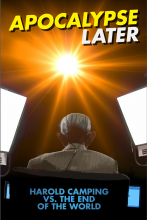
For thousands of years, select groups of Christians have thought their generation was Earth’s last. Even the Apostle Paul thought Jesus would return in his lifetime. But Paul didn’t have the audacity to pinpoint an exact date for what we call the Rapture. Harold Camping, on the other hand, did.
Apocalypse Later: Harold Camping vs. The End of the World a new documentary that premiered June 8 — exposes wrongful and conflicting beliefs about Jesus’ return by sharing Camping’s concrete opinions of those who didn’t follow his beliefs of the apocalypse. Declaring their spot in hell, Camping was certain that those who didn’t follow his apocalyptic views would spend eternity in damnation.
Apocalypse Later tells the story of Camping, a man who had to let go of his pride and face the reality of joining the dozens of others who have wrongly predicted the end of time.
In the documentary, historian and New Testament scholar Loren Stuckenbruck refers to the apocalypse as a “literary genre,” a “mode of thought,” and “a social movement.”
The film is emotional and shocking, contrasting the scary, more literal interpretations of fundamentalist Christians with the more nuanced hermeneutical approaches of academics like Struckenbruck. The juxtaposition reveals that the tensions and battles that Christians face might not be against those who will be “left behind,” but rather between Christians themselves.

Star Trek: Into Darkness is a fascinating and complicated story that is well worth watching. Instead of providing a summary, I want to explore three related aspects of the movie: sacrifice, blood, and hope for a more peaceful future.
Live Long and Prosper – The Sacrificial Formula
In a reference to my favorite Star Trek movie, Star Trek II: The Wrath of Khan, the current movie’s Spock (Zachary Quinto) restates the sacrificial formula: “The needs of the many outweigh the needs of the one.” This formula has generally been used throughout human history to justify sacrificing someone else. As René Girard points out, from ancient human groups to modern societies, whenever conflicts arise the natural way to find reconciliation is to unite against a common enemy.
Of course, there’s a lot of this going on throughout the Star Trek franchise. One conversation in Into Darkness explicitly points this out when Kirk (Chris Pine) unites with his enemy Khan (Benedict Cumberbatch), and explains it to Spock:
Kirk: The enemy of my enemy is my friend.
Spock: An Arabic proverb attributed to a prince who was betrayed and decapitated by his own subjects.
Kirk: Well, it’s still a hell of a quote.
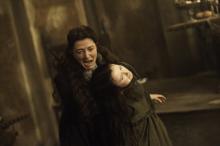
Is there anything morally redeeming about Game of Thrones? Does the hit HBO series even have a moral vision?
The show is certainly entertaining, almost addictively so, and as Game of Thrones wraps up its third season on Sunday, the ratings reflect that popularity: a record of more than 5.5 million viewers have followed the ruthless struggles for power among the teeming clans of Westeros, the medieval-looking world created by fantasy novelist George R.R. Martin.
That success has also guaranteed that the show will be back for a fourth year of mayhem and passion, swords and sorcery, despite this season’s many violent endings. Or, as one tweet put it after the bloody penultimate episode: “Why doesn’t George R.R. Martin use twitter? Because he killed all 140 characters.”
But therein lies the moral problem for some: The appeal of the series seems bound up in the senseless violence and amoral machinations – not to mention the free-wheeling sex – that the writers use to dramatize this brutish world of shifting alliances and dalliances.
That, in turn, has prompted intense debates about whether Christians should watch Games of Thrones at all, or whether the show’s only possible virtue is depicting how the world would look if Christ had never been born – or what it could look like if Christianity disappeared tomorrow.

Polley’s theater family has kept a rumor for years that Sarah’s dad may not be her biological father. Nagged by persistent jokes about her striking non-resemblance to the rest of the family, and unable to ask her long-since deceased mother, Polley sets out to put the record, and her family’s memories, straight.
There’s much to love here, and what immediately distinguishes Stories is the openness — both uncomfortable and endearing — with which Polley invites the audience to see the intimate process of art-making.
In short, we see a family — recognizable, ordinary, and still very much in the process of living — grappling with what it means to be suddenly be subjects in an intimate story no longer their own.
WAGS AND WISDOM
Critically acclaimed author Sue Halpern writes about experiences with her trained therapy dog, Pransky, illuminating seven classic virtues along the way, in A Dog Walks into a Nursing Home: Lessons in the Good Life from an Unlikely Teacher. A charming and insightful book. Riverhead Books
GOD AT THE BORDER
In Kinship Across Borders: A Christian Ethic of Immigration, Kristin E. Heyer develops a theological analysis, mainly rooted in Catholic thought, that examines the injustices of the current U.S. immigration system in the light of concepts of social sin, Christian family ethics, and broader policy considerations. Georgetown University Press
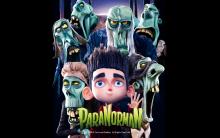
Paranorman, the stop-motion animated feature by Laika Studios just came out on Netflix instant download, so we decided to watch it for our family movie night. It's a fun film, perhaps a bit too scary for the little ones, but what really stood out for me was the surprisingly deep morality in this little film. This comes in an unlikely package since the film is about zombies and witches. Not surprisingly, if you look for Christian reviews of the film you will see many focus on warnings to stay way from the occult. Sadly, this response misses the profoundly deep moral message behind this film — one that confronts religious violence, and instead promotes a message of redemption and forgiveness. That's quite a bit of insight for a cartoon!
The premise of Paranorman is that the town of Blithe Hollow (not coincidentally set in Massachusetts, as we will see later) is about to be overrun by zombies because of the curse of an evil witch. Only Norman Babcock, an odd boy who can speak to the dead, can save the day. The movie begins by having us get to know Norman, who is emotionally isolated because his family does not understand him, and his peers ostracize and ridicule him as a "freak" at school. The only person who believes Norman is his friend Neil Downe, and overweight boy who is himself bullied.
The town is in peril because three centuries ago, an evil witch was executed, and in revenge put a curse on puritan judge and her accusers, cursing them to rise from the grave as zombies. So each year the curse of the witch must be appeased by reading from a mysterious book at the grave of the witch in order to prevent a zombie apocalypse. But this year that does not happen, and the zombies overrun the town. The townspeople and local police form the typical Frankenstein mob, complete with pitchforks and shotguns to kill the zombies. As the mob mentality grows, Norman and his motley band are threatened by the mob as well.
This is the first point where we see the film’s unmasking of "virtuous" violence: in the logic of many films, so long as someone is a "monster" or an "alien," it is okay to kill them. So we have no problem with watching mass killings of monsters or aliens in movies because ... well ... they're monsters. So you're supposed to kill them. That's what good guys do in movies. This is the unquestioned plot of hundreds of movies. As long as the Storm Troopers in Star Wars are faceless, we don't bat an eye when Luke kills one after the other. They have been dehumanized, and so it's okay to kill them all. The same is true for the Orks in Lord of the Rings, or the witch and her minions in the Chronicles of Narnia.

The last Terrence Malick film I went to see was Tree of Life, in which the critically acclaimed director — and devout Christian — advised audiences to “experience [the film] like a walk in the countryside. You’ll probably be bored or have other things in mind, but perhaps you will be struck, suddenly, by a feeling, by an act, by a unique portrait of nature.” Needless to say, the film was long — extremely beautiful, but a wee bit slow.
So you can imagine the shock I felt when Malick’s latest film, To the Wonder, abruptly ended after almost two hours and I thought to myself, “Wait, it’s already over?”
To the Wonder is certainly different from its immediate predecessor in Malick’s catalogue — there aren’t any dinosaurs in his latest effort. But it does still manage to have both the look and feel of a Malick film (i.e., it intersperses a linear story with lots of fluid, beautiful cinematography shot during “magic hour” with voice overs asking deep questions), albeit one that doesn’t drift off into long montages of the creation of the universe with voiceovers almost lifted from the book of Job.
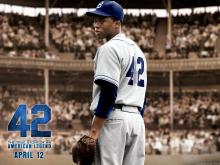
A new film about Jackie Robinson, titled “42″ — the number he wore during his historic career — tells the triumphant story of how the Civil Rights icon integrated professional baseball by playing for the Brooklyn Dodgers. But there’s a mysterious hole at the center of this otherwise worthy film.
The man who chose Robinson for his role, and masterminded the whole affair, was Dodgers General Manager Branch Rickey, played by Harrison Ford. In their initial meeting, the cigar-chomping Rickey makes it clear that whoever will be the first African-American in major league baseball will be viciously attacked, verbally and physically. So Rickey famously says he’s looking for a man “with guts enough not to fight back.” He needs someone who will resist the temptation to retaliate. Robinson agrees to go along with it.
But where did Rickey get that crazy idea and why did Robinson agree? The film doesn’t tell us, but the answers to these questions lie in the devout Christian faith of both men.
PAYING ATTENTION isn't easy in a world of infinite content, but there's a reason artists and prophets from Jeremiah to Arthur Miller have called upon us to sit up and listen: A drop of water or a focused breath may be as inexhaustible as a symphony or a thousand-mile trek. And one film? It could contain the world. On the Waterfront is not that film (for me it's Andrei Tarkovsky's transcendent portrait of a 15th century icon painter, Andrei Rublev), but it belongs in the canon all right. The new Criterion BluRay edition not only offers the crispest representation of the 1954 New Jersey dockyard visuals any of us have ever seen, it also illustrates the sociopolitical and creative context in a manner richer than any previously released.
So the story of a former prize fighter torn between his brother's mob ties, a blossoming love affair, his broken ambition, and desire to do the right thing emerges once again, six decades after first exploding onto the national consciousness, winning eight Oscars along the way. It's six decades and a bit more since its director, Elia Kazan, testified before the House Un-American Activities Committee, another man making a tough decision amid nearly impossible pressure: name names and survive or take the Fifth and receive exile. It's one decade after a perhaps more self-conscious Academy gave Kazan a lifetime achievement Oscar, though half of the audience chose to sit on their hands. We may ask whether or not the grace of God would have enabled any of us to do differently than Kazan, or if he perhaps had good reason to challenge the worst Soviet practices in the 1940s, or if the value of an artwork depends on the integrity of the artist. More questions besides are explored in the array of features on this On the Waterfront disc—interviews with Kazan, a documentary about the film's making, and a transcript of Kazan's defense of his testimony.

Steven Spielberg’s Lincoln will probably nab a few of its 12 nominated Academy Awards when the Oscars are handed out on Sunday — a sign that Americans never have and probably never will tire of our 16th president.
Abraham Lincoln’s face is etched in stone on Mount Rushmore and his brooding statue sits enshrined in a Greek-style temple in Washington. His succinct Gettysburg Address (about 270 words) took all of about two minutes to deliver, yet remains this nation’s most famous speech 150 years later. His assassination lifted him to mythic status — a martyr who earned his place in our pantheon of national heroes.
We just marked the 150th anniversary of his Emancipation Proclamation, but that necessary action wasn’t enough. Spielberg’s film revives Lincoln’s second act, in 1865, to pass the Thirteenth Amendment to abolish slavery through a divided Congress. It wasn’t the only injustice Lincoln worked to correct.
In his recent book, When General Grant Expelled the Jews, Brandeis University Professor Jonathan D. Sarna recounts an important but little-known event in 1863 in Lincoln’s quest for full civil, religious, and human rights for all Americans — this time, for American Jews.

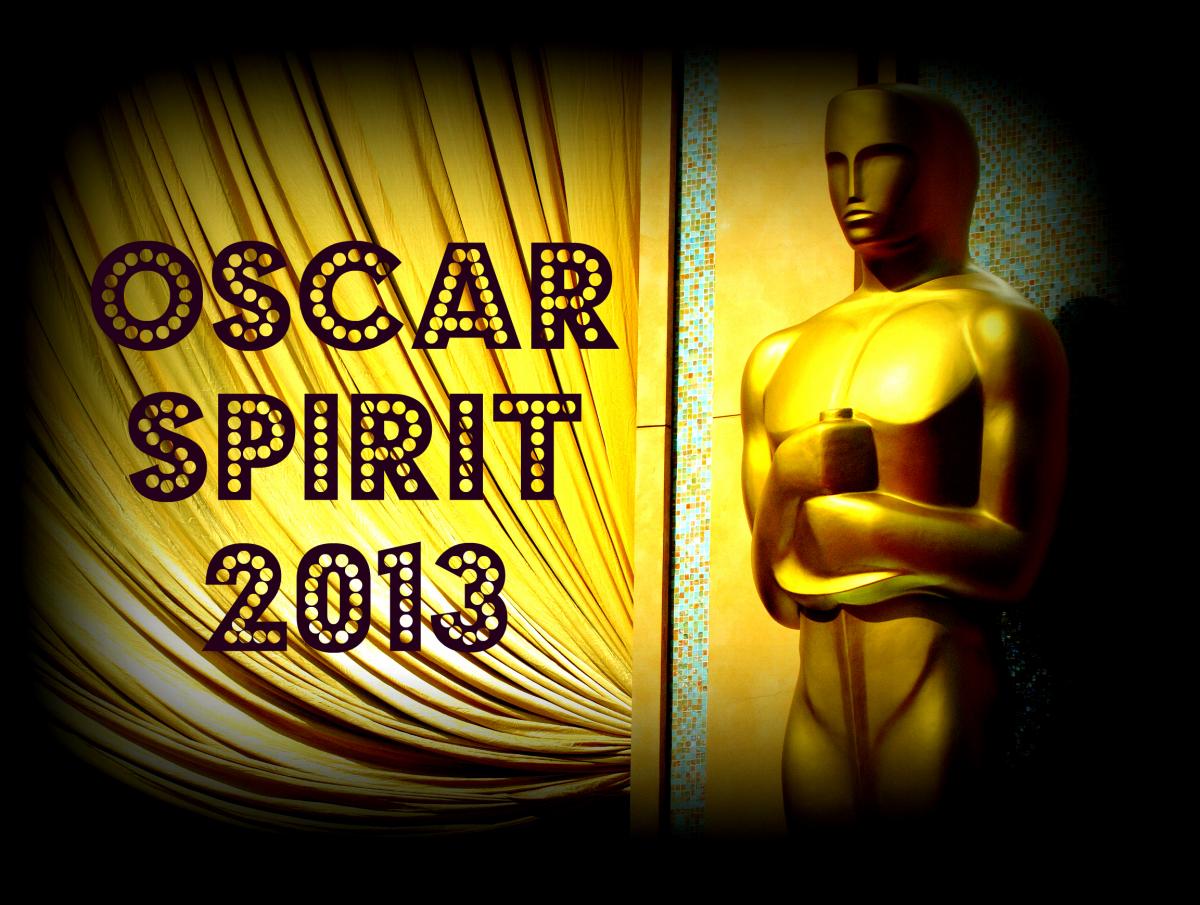 The fragility of life. The servanthood of love. The (im)morality of war. The fundamentals of mercy and justice. The power of grace and forgiveness. The oneness of creation. The personal (and spiritual) toll of climate change. The nature of God and faith. These are some of the spiritual themes explored in the mostly august field of nine contenders for the 2013 Academy Award for Best Picture — Amour, Argo, Beasts of the Southern Wild, Django Unchained, Les Miserables, Life of Pi, Lincoln, Silver Linings Playbook, and Zero Dark Thirty.
The fragility of life. The servanthood of love. The (im)morality of war. The fundamentals of mercy and justice. The power of grace and forgiveness. The oneness of creation. The personal (and spiritual) toll of climate change. The nature of God and faith. These are some of the spiritual themes explored in the mostly august field of nine contenders for the 2013 Academy Award for Best Picture — Amour, Argo, Beasts of the Southern Wild, Django Unchained, Les Miserables, Life of Pi, Lincoln, Silver Linings Playbook, and Zero Dark Thirty.
This week, in the run-up to Sunday's Academy Awards ceremony, we're taking a look at each of the Best Picture nominees, the stories they tell, and the spiritual questions (and answers) they offer. Today we turn our attention to Django Unchained, Les Miserables, and Life of Pi.

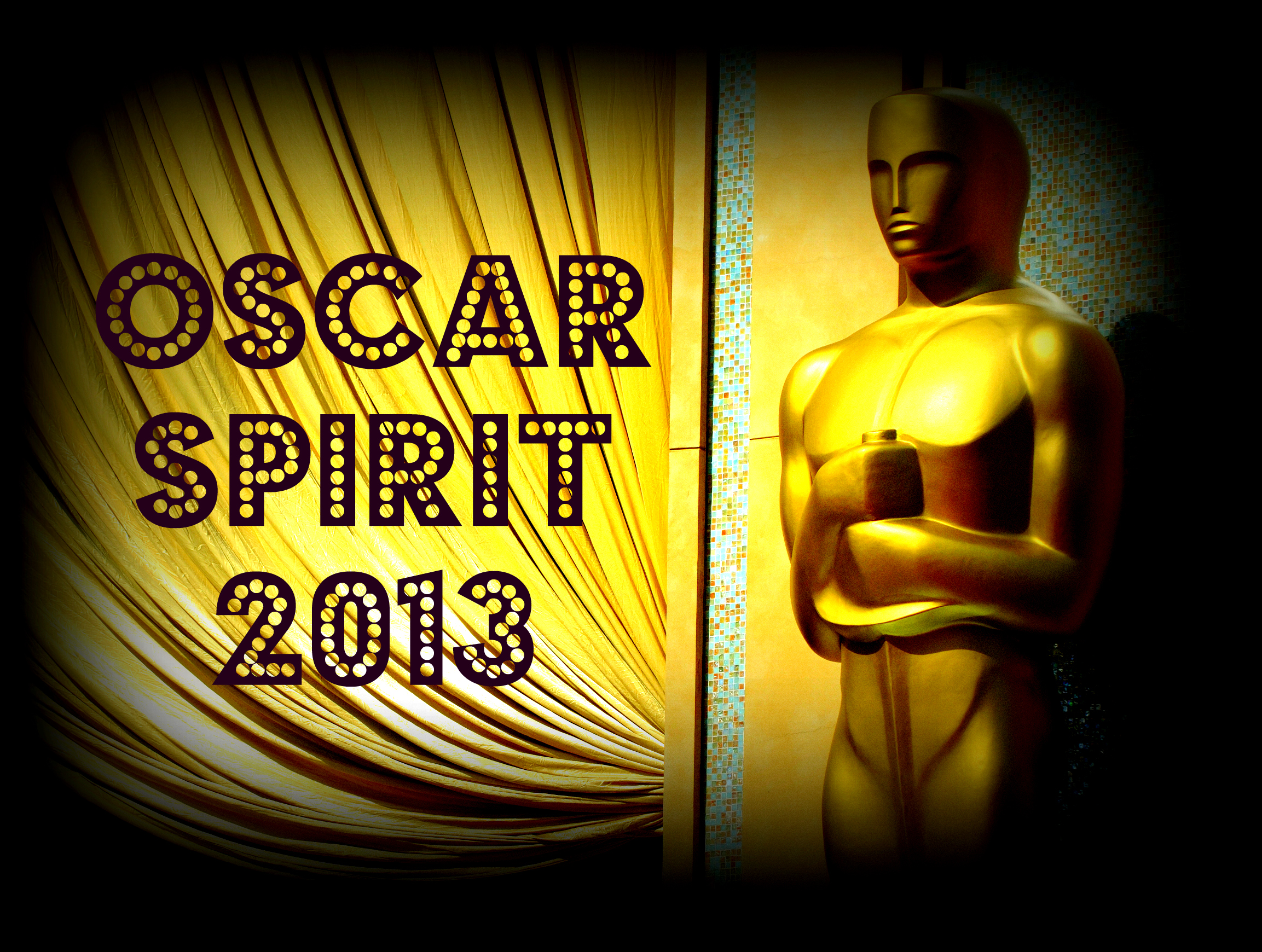 The fragility of life. The servanthood of love. The (im)morality of war. The fundamentals of mercy and justice. The power of grace and forgiveness. The oneness of creation. The personal (and spiritual) toll of climate change. The nature of God and faith.
The fragility of life. The servanthood of love. The (im)morality of war. The fundamentals of mercy and justice. The power of grace and forgiveness. The oneness of creation. The personal (and spiritual) toll of climate change. The nature of God and faith.
These are some of the spiritual themes explored in the mostly august field of nine contenders for the 2013 Academy Award for Best Picture -- Amour, Argo, Beasts of the Southern Wild, Django Unchained, Les Miserables, Life of Pi, Lincoln, Silver Linings Playbook, and Zero Dark Thirty.
2012 was an extraordinary year for film. This year's Best Picture field is perhaps stronger than it's been in recent memory, replete with nuance and substance, each film presenting a uniquely compelling and memorable tale that both informs and reflects our culture, sensibilities, and challenges.
A few of the nominated films employ overtly religious ideas and language (Life of Pi, Les Miserables, Lincoln), while others tackle daunting ethical issues that speak to our deepest identities and values (Argo, Djano Unchained, Zero Dark Thirty), or explore the sacred landscape of friendship, family, and unconditional love (Amour, Beasts of the Southern Wild, The Silver Linings Playbook.)
For the next three days, we'll look at each of the Best Picture nominees, the stories they tell, and the spiritual questions (and answers) they offer.
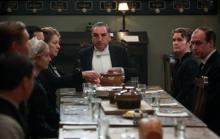
The third season of the megahit PBS series “Downton Abbey” wraps up on Sunday, capping another must-see run of ruin and redemption at Lord Grantham’s stately English manor. Yet some are still left puzzled over the absence of what should be a leading Upstairs player in this colorful cast: God.
Writing last month in the flagship evangelical magazine Christianity Today, Todd Dorman wondered why — despite the heart-rending melodrama and all the “divine trappings” that gild the 1920s scenery — “God is a peripheral presence at best.”
“There are numerous fascinating blog posts … that search for implicit Catholic and Christian themes in the show — good and evil, suffering for cause, various types and grades of love and devotion,” Dorman wrote. “At some point, though, especially with a vicar in the family’s employ, it seems odd for such connections to remain unnamed, unspoken, and, for all we can see, unperceived.”
WE SHOULDN'T really expect the Oscars to grasp the point of history, though this year the films nominated for Best Picture are a fascinating snapshot of what ails—and could heal—us.
Zero Dark Thirty takes a clinical view of the search for Bin Laden and has been criticized for its portrayal of torture as effective. To my mind this debate may miss the wider question: Torture is bad enough, but a central assumption about the efficacy and validity of killing for peace—that shooting an old man in his bedroom would solve anything—is worthy of enhanced interrogation.
The point is missed also in the brouhaha about Django Unchained, Quentin Tarantino's thrilling satirical Western. People are up in arms about the comic book violence and use of the N-word—but this is perhaps the most powerful, even indelible, portrayal of the violence of slavery ever made for a mainstream audience. Two wrongs don't make a right, and the revenge arc in this film should be questioned, but Tarantino has done a moral service in not sanitizing his fictionalization of historical memory. Lincoln is the perfect companion piece—I highly recommend you see both. Django Unchained uses B-movie tropes to vastly entertain while confronting the real horrors Abraham Lincoln was fighting to end. Lincoln is a theatrical history lesson that delicately handles the moral authority competitions, language games, and political complexity behind the 13th Amendment.
The Whole Gospel
Ken Wytsma's Pursuing Justice: The Call to Live & Die for Bigger Things is a passionate evangelical argument for making justice central to a gospel-rooted life. For those who already embrace social justice in their faith, it is a spiritual refresher and resource for engaging with more wary Christians. Thomas Nelson
Their Future, Our Future
Girl Rising, a feature film on the power of education in the lives of nine girls from the developing world, releases March 7. It is at the center of a social action campaign for girls' education called 10x10, launched by former ABC News journalists. Learn more, advocate, or organize a screening. 10x10act.org

PARK CITY, Utah — It’s been said that Hollywood films comfort the afflicted while Sundance films afflict the comfortable. Film offers a vicarious entry to the world the way it is, and the films I saw at the 2013 Sundance Film Festival left me longing for a different world — the world the way it ought to be.
It ought to be a world in which Muslims and Christians love, serve, protect, and forgive each other. Circles is based on a 1993 incident that took place in Trebinje, a small town in the Serbian region of east Herzegovina. Three Serb soldiers were brutally beating Alen Glavovic, a Muslim shopkeeper. When Srdjan Aleksic, a Christian Serb intervened to stop the soldiers, they turned their attention on him and beat him to death. The film explores the impact of this incident on the Muslim who survived the beating, Srdjan’s fiance and his father, on the children of the perpetrators, and on the whole village.